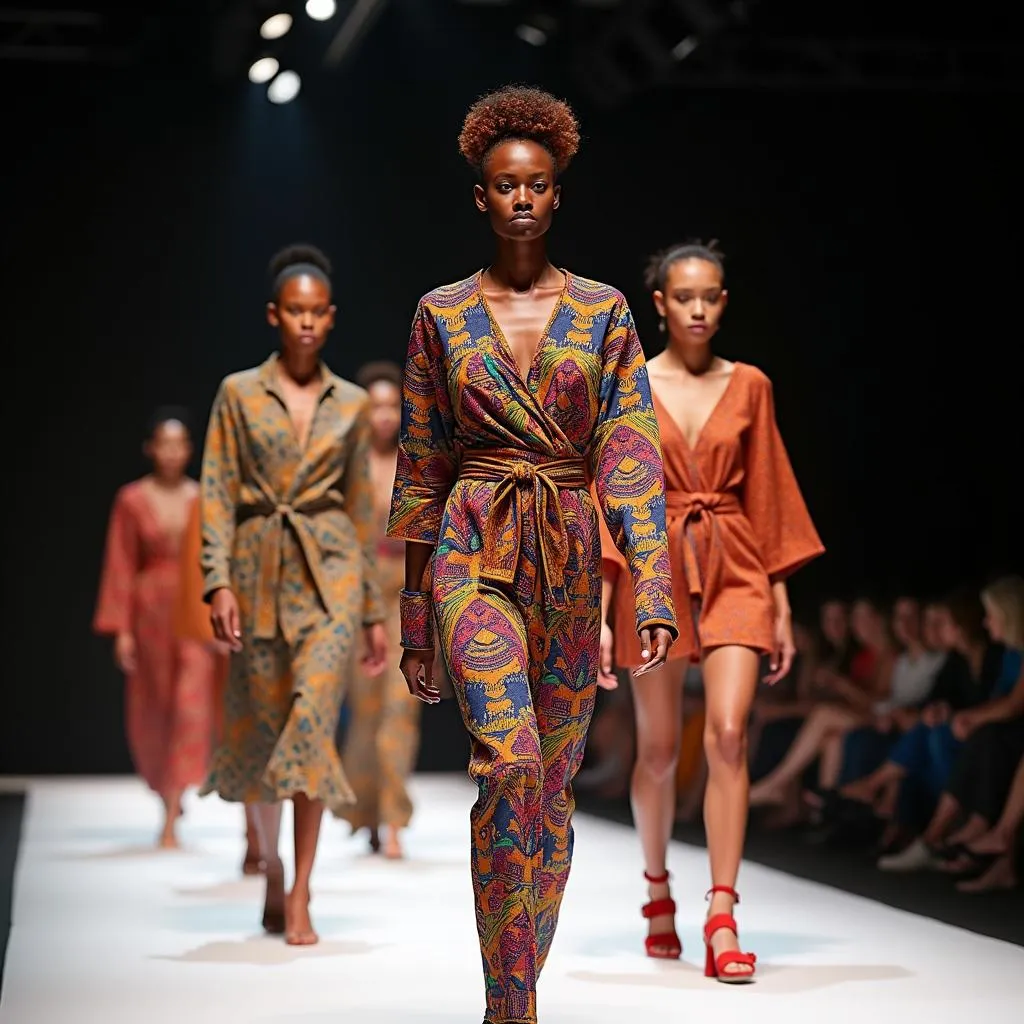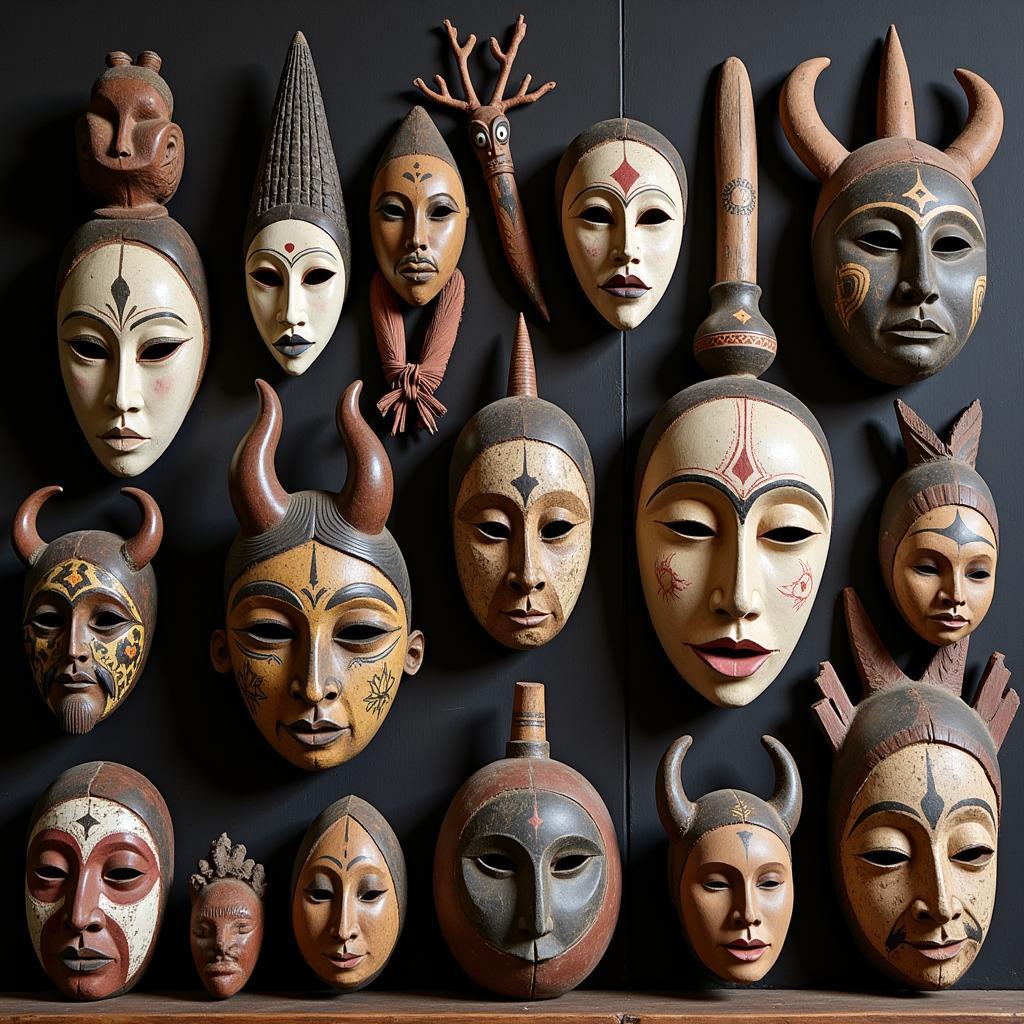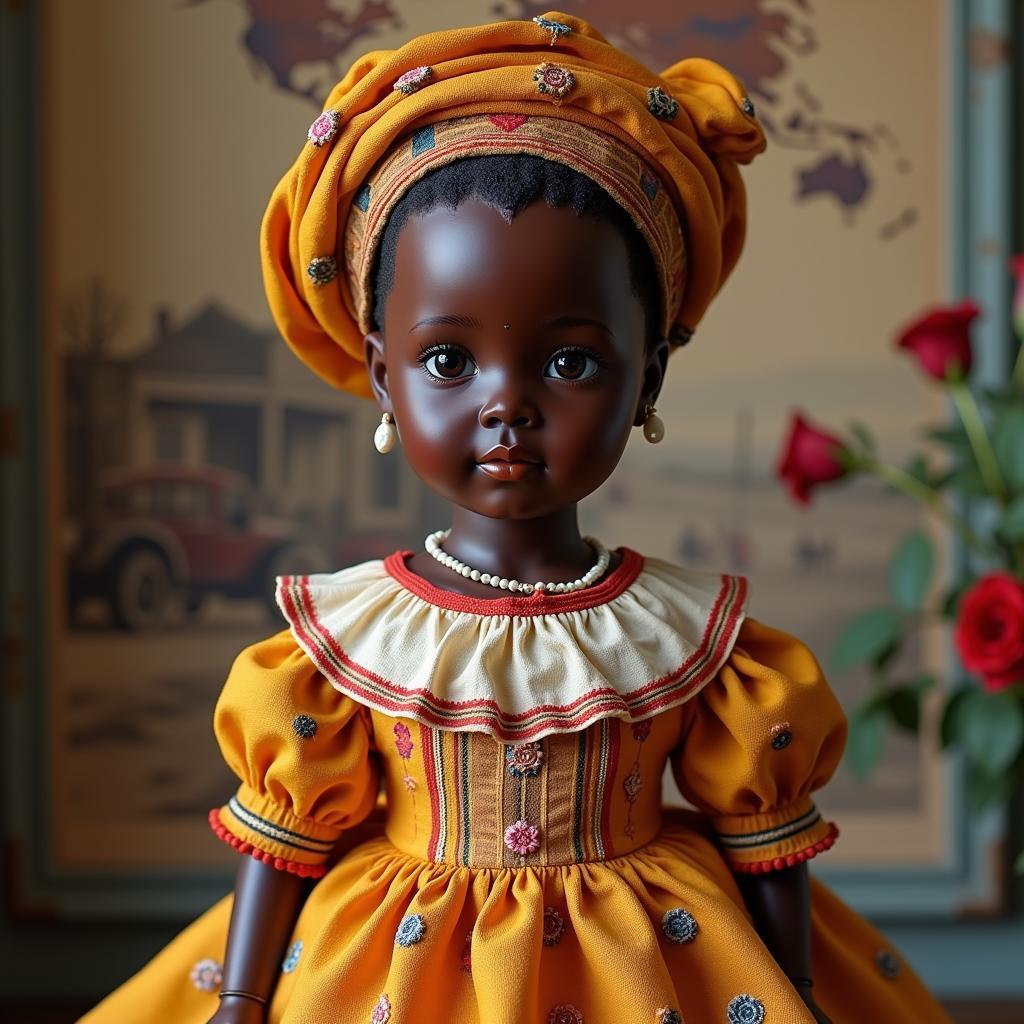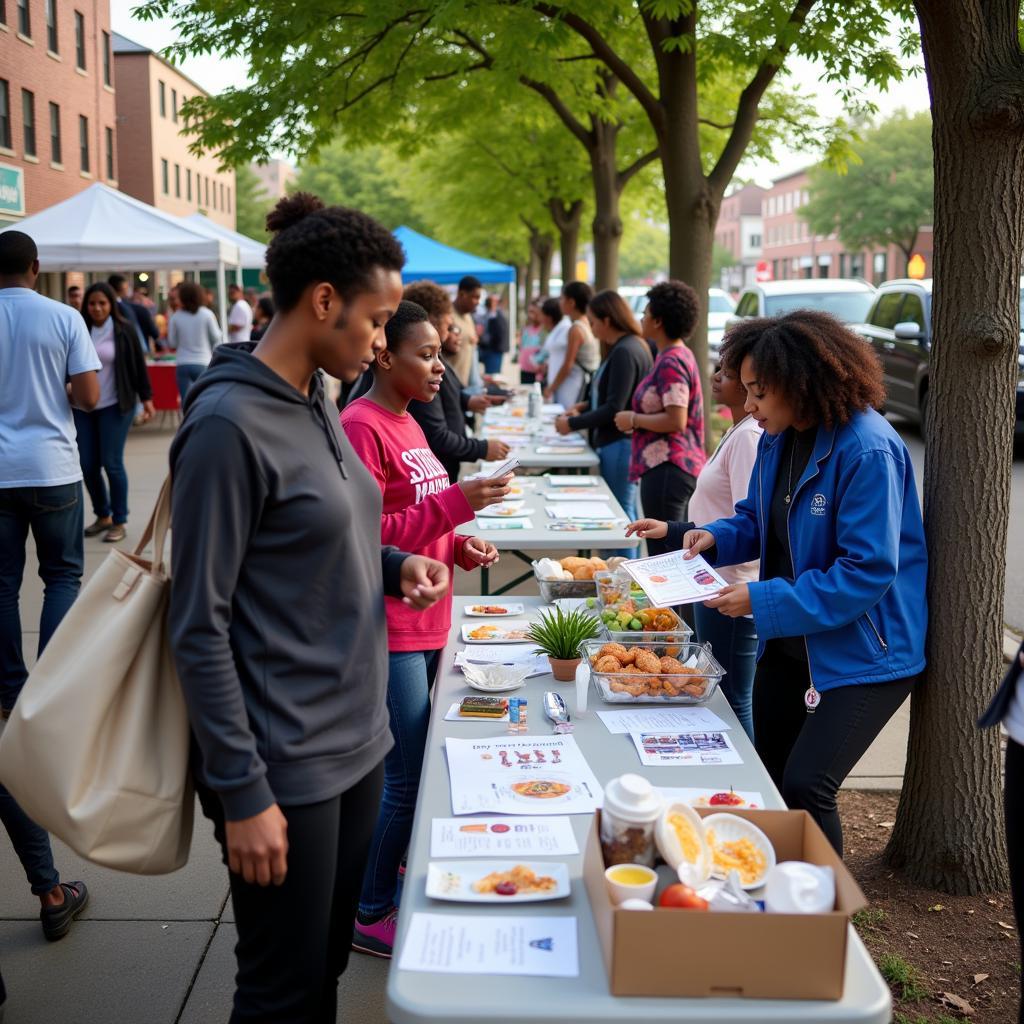African Culture Definition: A Rich Tapestry of Traditions
African culture is as diverse as the continent itself, a vibrant blend of languages, beliefs, customs, and artistic expressions that have evolved over millennia. Defining African culture in a singular sense is a daunting task, as it encompasses the traditions of over 50 countries and thousands of ethnic groups, each with their own unique heritage.
Beyond a Simple Definition: Understanding the Complexity
It’s impossible to encapsulate the vastness of African culture in a single sentence. While some may try to define it through generalizations about music, art, or social structures, this approach risks overlooking the nuances and complexities that make each African culture unique.
For instance, while music and dance are integral to many African cultures, the styles and instruments vary greatly. From the rhythmic drumming of West Africa to the melodic vocals of East Africa, each region boasts its own distinct musical traditions. Similarly, visual arts, like the intricate beadwork of the Maasai or the colorful Ndebele house painting, showcase the artistic ingenuity and diverse aesthetics found across the continent.
Key Elements that Shape African Cultures
While diversity is paramount, certain common threads weave through the tapestry of African culture. These shared elements, often rooted in shared history and values, offer a glimpse into the core principles that have shaped African societies for generations:
- Community: A strong sense of community and collectivism is paramount in many African cultures. The well-being of the group is often prioritized over individual needs, fostering a spirit of cooperation and mutual support.
- Oral Tradition: Storytelling, proverbs, and music are not merely forms of entertainment but vital tools for transmitting knowledge, history, and values across generations. This rich oral tradition ensures cultural continuity and strengthens community bonds.
- Respect for Elders: Age is revered in many African cultures, and elders are seen as repositories of wisdom and experience. Their counsel is sought on important matters, ensuring the preservation of traditional knowledge.
- Spirituality: Religion and spirituality play a significant role in daily life for many Africans. Traditional beliefs often intertwine with major religions like Christianity and Islam, resulting in unique syncretic practices.
The Impact of History on African Culture Today
African culture is not static; it’s a dynamic force shaped by historical events. From ancient empires to colonization and the struggle for independence, these experiences have left their mark on the cultural landscape.
Understanding the historical context is crucial when exploring any aspect of African culture. For example, the transatlantic slave trade had a profound and lasting impact, leading to the dispersal of African traditions to the Americas and contributing to the formation of unique African diaspora cultures.
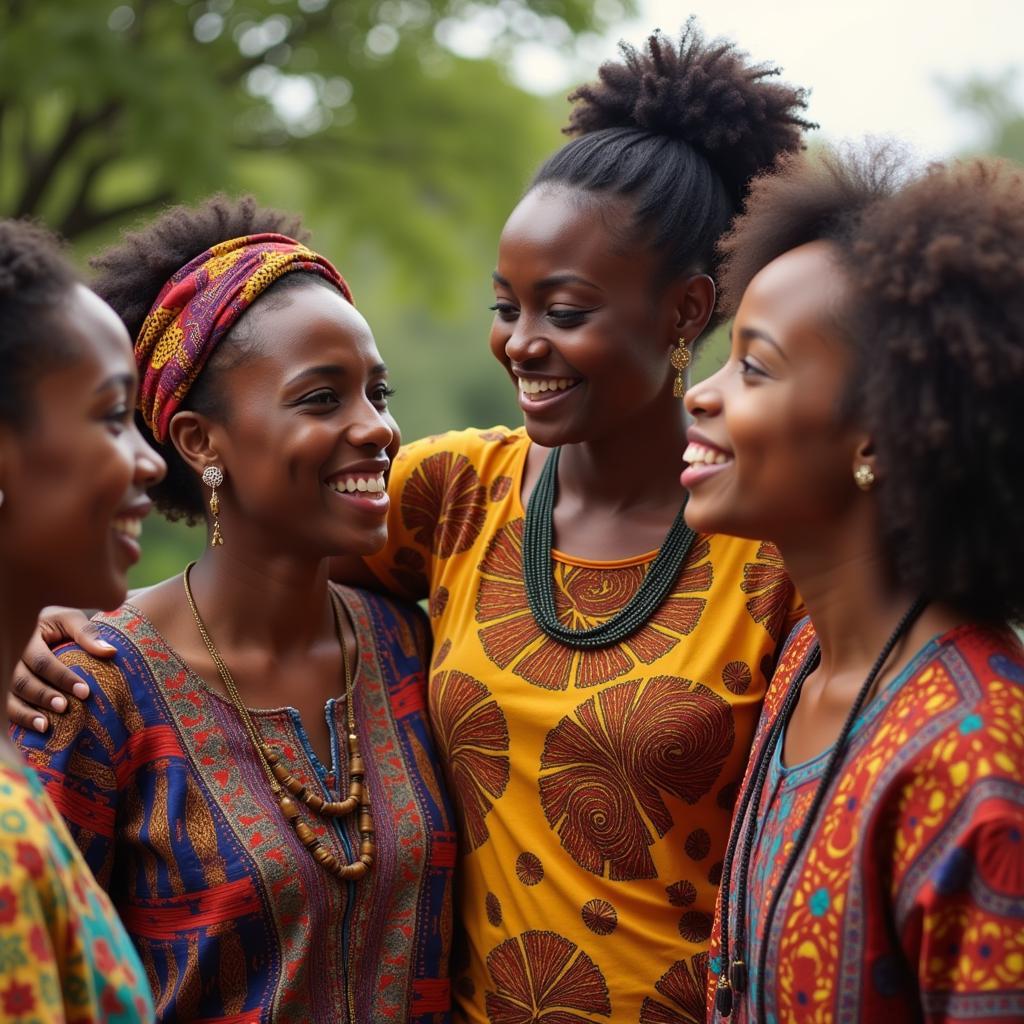 Family Celebration in Africa
Family Celebration in Africa
Appreciating the Nuances: Avoiding Stereotypes
It’s essential to approach African culture with an open mind and a willingness to learn. Stereotypes and generalizations often paint an inaccurate and reductive picture of the continent’s diversity.
When seeking to define African culture, remember:
- Africa is not a monolith: Avoid using sweeping statements that homogenize the continent. Each region, country, and ethnic group possesses its own distinct cultural practices and beliefs.
- Context is Key: Consider the historical and social context when interpreting cultural expressions. What might seem unusual at first glance often has deep-rooted significance within its specific cultural framework.
- Engage with Respect: Approach learning about African culture with humility and respect. Seek out authentic sources of information, engage with diverse voices, and be open to having your perspectives challenged.
Exploring the Depths of African Culture
For those eager to delve deeper into the richness of African culture, a wealth of resources awaits. From museums and art galleries to music festivals and cultural events, there are countless opportunities to immerse oneself in the sights, sounds, and stories of Africa.
By embracing the diversity and seeking understanding beyond stereotypes, we can begin to appreciate the true beauty and complexity that defines African culture.
